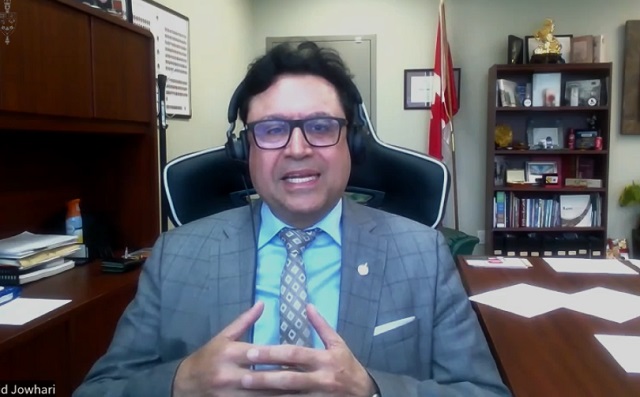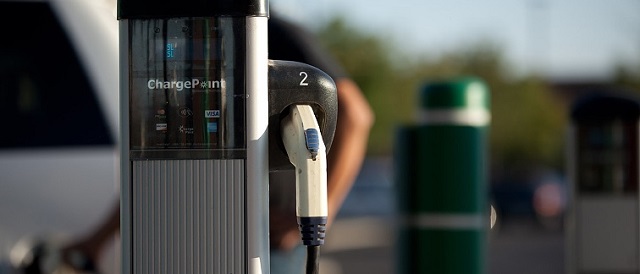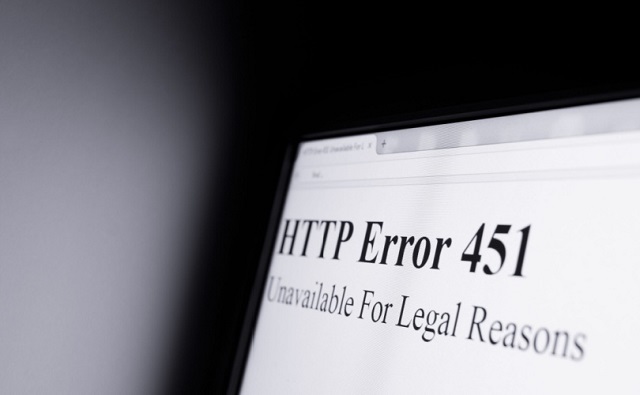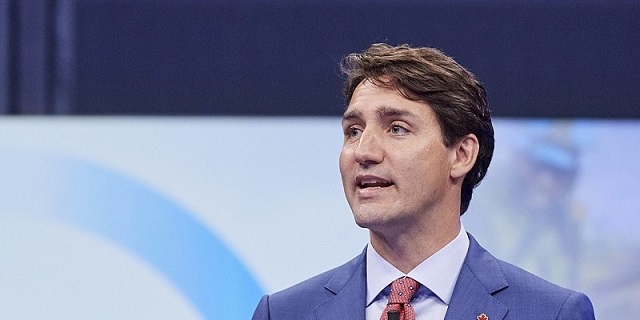Uncategorized
UK’s May faces Parliament after EU grants Brexit extension

LONDON — A clearly frustrated European Union has given Britain a few more months to find a way out of its Brexit quagmire. Now it’s up to Britain’s squabbling politicians to work out if they can meet the new Halloween deadline.
Prime Minister Theresa May is expected to brief Parliament Thursday on the results of the emergency EU summit that ended in the early hours with the bloc agreeing an extension to the country’s departure until Oct. 31.
However, her path toward actually taking Britain out of the EU remains unclear.
She is blocked by a strong faction in her own Conservative Party that hates her withdrawal deal and hopes to oust her, and talks aimed at winning support from the opposition Labour Party are moving forward slowly, if at all.
May’s own authority has been gravely compromised by the long Brexit ordeal and she has promised to step down once Britain leaves the bloc — if efforts to get rid of her more quickly do not bear fruit.
Faced with so much uncertainty, EU leaders whose talks went well after midnight agreed on a new Oct. 31 cutoff date. If no extension was granted, then Britain faced the prospect of crashing out of the EU this Friday with no deal, a scenario that in Parliament worry would lead to a deep recession as tariffs are imposed on U.K. exports and other restrictions on trade are imposed.
“Please, do not waste this time,” European Council President Donald Tusk pleaded. He said the EU was giving Britain six more months “to find the best possible solution” to its Brexit impasse.
Like many things related to Brexit, the extension was a messy compromise. May came to an emergency summit in Brussels seeking to postpone Britain’s departure from the EU until June 30. Some European leaders
Leaders of the 27 remaining EU member states met for more than six hours over a dinner of scallop and cod before settling on the end of October, with the possibility of an earlier Brexit if Britain ratifies a withdrawal agreement.
May said the possibility of leaving before the deadline was a key request of hers.
“I continue to believe we need to leave the EU, with a deal, as soon as possible,” she told reporters.
She noted that if U.K. lawmakers back her Brexit deal, Britain could still leave by June 30 — the Brexit deadline she had requested from the bloc — and possibly as soon as May 22, which would release Britain from having to participate in elections for the European Parliament.
May spoke to the 27 EU leaders for just over an hour, before they met for dinner without her to decide Britain’s fate. In contrast to some testy recent summits, there were signs of warmth, even
While many leaders said they were inclined to grant a Brexit delay, Macron expressed reservations, warning as he arrived at the summit that “nothing is decided.”
Afterward, the French president said he was satisfied with the outcome.
“We did the best possible compromise to preserve the unity of the 27 (other EU members) because we have left the United Kingdom more time to deliver a deal,” Macron said.
Tusk said that during the extension Britain “will continue its sincere
Several months have passed since May and the EU struck a deal laying out the terms of Britain’s departure and the outline of future relations. All that was needed was ratification by the British and European Parliaments.
But U.K. lawmakers rejected it — three times. As Britain’s departure date of March 29 approached with no resolution in sight, the EU gave Britain until Friday to approve a withdrawal plan, change course and seek a further delay to Brexit, or crash out of the EU with no deal to cushion the shock.
Economists and business leaders have warned that a ‘no-deal’ Brexit would lead to huge disruptions in trade and travel, with tariffs and customs checks causing gridlock at British ports and possible shortages of goods.
The Confederation of British Industry said the Brexit extension means an “imminent economic crisis” has been averted for now.
After all, all options from a ‘no-deal’ Brexit to a general election to no Brexit at all remain on the table.
May has previously said that “as prime minister” she could not agree to let Britain stay in the EU beyond June 30, and has promised to step down once Brexit is delivered. Many Conservative Party lawmakers want a new leader to take charge of the next stage of Brexit. But they can’t force her out until the end of the year, after she survived a no-confidence vote in December.
Several days of talks between May’s Conservative government and the main opposition Labour Party aimed at finding a compromise have failed to produce a breakthrough. Labour
Pro-EU politicians said the next few months should be used to hold a new referendum on whether to leave the EU or remain. Scottish National Party Nicola Sturgeon said in a tweet after the extension was granted that the British people should be allowed to “decide if they still want to leave.”
Irish Prime Minister Leo Varadkar said the time had come for Britain to decide what it wants.
“We’re giving them a very long time to take a decision,” he said.
“You know, the European Union is not a prison. Nobody has to stay but it is also a home and we are not going to kick anyone out.”
As to the symbolic end date? He said it was not on the minds of the EU leaders.
“As I learned this evening, Halloween is not a holiday widely celebrated across the European Union,” Varadkar said.
____
Katz reported from London. Associated Press writers Mike Corder and Angela Charlton in Brussels and Danica Kirka in London, and Sylvie Corbet in Paris contributed to this report.
Raf Casert, Jill Lawless And Gregory Katz, The Associated Press
Uncategorized
RCMP recruitment failure has Alberta advocacy group calling for Provincial Police Service

News release from Free Alberta Strategy (A Strong And Sovereign Alberta Within Canada)
“Make no mistake, we are paying for these services that we aren’t receiving. Alberta’s taxpayers are paying tens of millions of dollars for nearly 400 vacant RCMP officer positions – for boots that are not on the ground.”
A recent report from the Royal Canadian Mounted Police (RCMP)’s independent Management Advisory Board had findings that are nothing short of alarming:
“Federal policing has now arrived at a critical juncture of its sustainability, which present risks for the national security and safety of Canada, its people, and its interests,” says the report.
After over a year of diligent study, the Board has been tirelessly firing off flares, signalling to all who will listen: the very foundation of our national public safety apparatus may be at risk of faltering.
This is doubly problematic because, as you well know, the RCMP is also responsible for boots-on-the-ground policing in large parts of the country, including many rural and remote areas – including in Alberta.
Rural crime has been a longstanding issue in Alberta, and social disorder continues to make headlines nightly.
Alberta Minister of Public Safety, Mike Ellis, took to social media platform X (formerly known as Twitter) to express his opinion:
“The independent report finds the RCMP has struggled in recent years to recruit and retain regular members, a problem that’s particularly acute in federal policing. This is not about the hard-working men and women on the frontline: they are doing everything they can. The reality is the RCMP do not have enough officers to police communities in Canada effectively.”
Ellis has been ahead of this story for months now.
In March, Ellis stated that:
“… on average, Alberta has an RCMP officer vacancy rate of 20 per cent. This means that Alberta is only being served by 1,522 of the 1,911 RCMP officers that the federal government has authorized for Alberta.”
“Make no mistake, we are paying for these services that we aren’t receiving. Alberta’s taxpayers are paying tens of millions of dollars for nearly 400 vacant RCMP officer positions – for boots that are not on the ground.”
The consequences of this capacity crisis are far-reaching.
Not only does it jeopardize the safety of Albertans, but it also undermines the credibility of Canada’s federal police force on the international stage.
With limited resources and personnel, the RCMP’s ability to address pressing national and global security concerns is severely compromised.
The Management Advisory Board, created in 2019 by the federal government to provide external advice to the RCMP commissioner, set up a task force in the fall of 2022 to study the federal policing program.
Overall, the report says budget and personnel shortfalls have left the RCMP “operationally limited,” restricting the number of cases it can take on annually.
Here are some more highlights from the report:
“Canada and its people have already begun to see the repercussions of the federal policing program being stretched thin.”
“Federal policing’s overall eroding capacity may have implications for the credibility of Canada’s federal police force and its investigations on the international stage.”
“Ultimately, this may influence Canada’s overall approach and standing in international politics, including its ability to advance global priorities.”
Clearly, we cannot afford to wait any longer.
Municipalities can ease the burden on our national security services by establishing municipal policing.
Several cities in Alberta already have their own police authorities, and the provincial government is providing funding for others interested in exploring this option.
Grande Prairie is already in the process of establishing their own municipal police service.
No word on how many other municipalities have taken the government up on their offer.
Unfortunately, President of Alberta Municipalities Tyler Gandam (also Mayor of Wetaskiwin) is featured prominently on the National Police Federation’s “Keep Alberta RCMP” website.
Interestingly, the Keep Alberta RCMP website doesn’t mention the fact that the advisory board even exists.
It doesn’t mention the report.
The notion that our federal policing infrastructure teeters on the brink of instability while Gandam appears to be asleep at the wheel, is deeply disconcerting.
The safety and security of Albertans must remain our top priority.
We cannot afford to wait any longer.
The time has come for the province to take swift and decisive measures to bolster policing capabilities in Alberta.
It’s time for Alberta to seriously consider the establishment of an Alberta Provincial Police Service.
It has been one of the core tenets of the Free Alberta Strategy.
If you agree, please reach out to your municipality and ask them to take steps to protect your community.
Together, we can keep Alberta safe.
Regards,
The Free Alberta Strategy Team
P.S. We’re hoping you’ll consider contributing to our cause. Your generous donation helps us make a positive impact in our community. No need to worry about any hold-ups or threats here. We’re just passionate about making a difference, and your support goes a long way in helping us achieve our goals.
Uncategorized
Making Alberta a geothermal energy leader

Eavor announces it’s the #1 geothermal energy startup company in the world – January 2024
Alberta is creating Canada’s first geothermal test site to advance drilling innovation, reduce emissions and create jobs.
Geothermal energy uses naturally occurring heat within the earth to heat water and buildings and generate power, with few emissions or environmental impacts. Alberta has vast pockets of heat below ground, making the province Canada’s geothermal leader, but testing and developing new technologies can be a barrier for many companies. Unlike the United States, Japan and other countries, Canada does not currently have an open-access test site to help spur innovation.
Alberta is taking the first steps to create a new Alberta Drilling Accelerator. This groundbreaking facility would be the first of its kind in Canada, establishing Alberta as a global hub for geothermal technology. This will drive new innovations in geothermal and other clean energy projects that can reduce emissions and power communities around the world.
To kick-start the project, the Alberta government is investing $750,000 to conduct a feasibility study led by Calgary-based Eavor Technologies and other stakeholders. The study is the first step in assessing the proposed facility. It will include identifying a site, business planning, research on the governance model, an economic impact analysis and stakeholder engagement that will lay the groundwork for the initial planning stages of the project.
“Alberta has been a global energy leader for more than a century, renowned for our skilled workforce, innovation and one of the largest oil and gas reserves on the planet. The proposed Alberta Drilling Accelerator presents enormous potential to help our province lead the next wave of energy projects here at home and around the world that reduce emissions, create jobs and enhance energy security.”
The Alberta Drilling Accelerator would help companies test out and develop new geothermal drilling techniques or technologies to reduce emissions and drive growth across the clean energy sector. It would be an open-access, technology-agnostic drilling test facility capable of drilling in challenging environments, including deep depths, high temperatures and different rock types.
The accelerator also would help speed up the development of carbon capture, utilization and storage; helium; critical minerals; and other clean technologies and commodities that rely on Alberta’s drilling sector. All of this helps attract investment and bring new technologies to scale in Canada.
“With cumulative geothermal investment poised to reach $1 trillion by 2050, a geothermal arms race is very much underway to commercialize novel drilling techniques that accelerate geothermal development – exhibited by testing facilities in the United States, China and Iceland. As Canada’s first geothermal test bed, the Alberta Drilling Accelerator will help bring geothermal technologies to scale, supporting companies like Eavor. We commend the Government of Alberta for this bold initiative.”
“We are proud to witness Eavor, a CDL-Rockies alumni company, create new opportunities for innovators like themselves to advance the adoption of energy transition technologies like geothermal. The Alberta Drilling Accelerator will further solidify Alberta’s position as a leader in the global sustainable energy landscape.”
If the feasibility study shows the facility is economically and environmentally viable, and if the project is approved by the Alberta government, the facility will start taking shape at the selected site and drilling could start as early as 2025.
“Canada is home to the most advanced drilling technology in the world. Not only do our members support the responsible development of oil and gas, but we are integral in the extraction of new energy resources like geothermal and critical minerals. Our workers are at the epicentre of Canada’s energy transformation. Our people, technology and processes are leading the way towards a more diverse energy future. The Alberta Drilling Accelerator is a government-enabled policy approach to expand Alberta’s drilling capacity and reach its full potential as the world’s most diverse and technologically advanced producer and exporter of sustainable energy and critical minerals.”
“The Alberta Drilling Accelerator is a testament to Alberta’s innovative and entrepreneurial spirit. Leveraging our oil and gas sector expertise, Alberta is poised to become the global leader in developing new geothermal technologies that will play an integral role in reducing emissions while supporting job creation.”
Quick facts
- The Canadian Association of Energy Contractors estimates that one active drilling rig, whether drilling for natural gas or geothermal, creates approximately 220 direct and indirect jobs and
$1 million in tax revenue. - In 2019, Eavor received $2 million in provincial funding through Emissions Reduction Alberta and Alberta Innovates for the world’s first closed-loop geothermal system.
Related information
-

 Addictions17 hours ago
Addictions17 hours agoLiberals shut down motion to disclose pharma payments for Trudeau’s ‘safe supply’ drug program
-

 espionage12 hours ago
espionage12 hours agoThe Scientists Who Came in From the Cold: Canada’s National Microbiology Laboratory Scandal, Part I
-

 Energy9 hours ago
Energy9 hours agoTech giants’ self-made AI energy crisis
-

 Energy1 day ago
Energy1 day agoNew Report Reveals Just How Energy Rich America Really Is
-

 Automotive1 day ago
Automotive1 day agoBiden’s Climate Agenda Is Running Headfirst Into A Wall Of His Own Making
-

 Economy1 day ago
Economy1 day agoFeds spend $3 million to fly 182 politicians and bureaucrats to climate conference
-

 National10 hours ago
National10 hours agoTrudeau’s internet censorship Bill C-11 will not be implemented until late 2025
-

 Frontier Centre for Public Policy6 hours ago
Frontier Centre for Public Policy6 hours agoThe PM as Leaf’s coach








